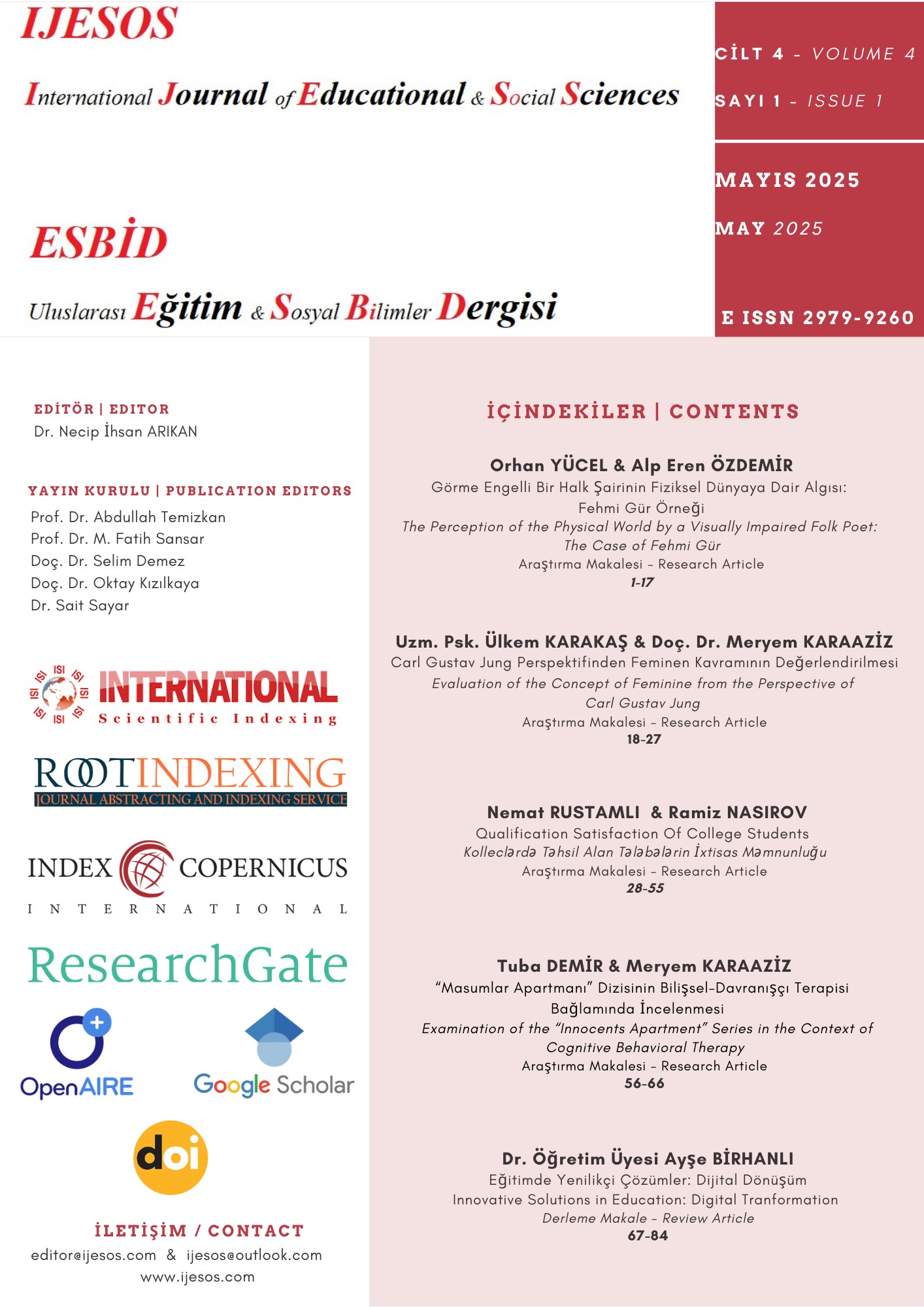Examination of the Innocents Apartment Series in the Context of Cognitive Behavioral Therapy
DOI:
https://doi.org/10.5281/zenodo.15448771Keywords:
Cognitive behavioral therapy, Innocents Apartment, incompatible behaviorAbstract
The series, adapted from Gülseren Budayıcıoğlu's novel “Inside the Medallion” published in 2004, deals with the tragic past and psychological conditions of 4 siblings and their father living in the same house in Istanbul. In this study, it is aimed to examine it in the context of the CognitiveBehavioral family therapy school. CBT describes the systematic application of learning theories and principles in the treatment and assessment of maladaptive behaviors or symptoms. The scenes in the series that were thought to correspond to these concepts were analyzed. Document analysis technique, one of the qualitative research methods, was used in this study. In CBT, it focuses especially on how family members feel, how they behave, how they think, and it is thought that this series, which contains examples suitable for the way they live in line with these values, will contribute to the psychological counseling process and the people who will receive training within the framework of the CBT approach.
References
Ali Yasin, K. (2021). Obsesif Kompulsif Bozukluk Tedavisinde Kullanılan Davranışçı Müdahale Teknikleri: Sistematik Derleme,13(4):726-738.
Bozkurt, K., Yüksel, T., Aysu, G. (2015). Üniversite Öğrencilerinin İletişim Becerileri ile Kişilerarası Problem Çözme Becerileri Arasındaki İlişki, 4(1), 369-390.
Fidan, K. (2002). Lise Öğrencilerinin Problem Çözme Becerileri, 177-184.
Gülten, İ. (2019). Bilişsel Davranışçı Çift Terapisi. Dergi Park Akademi, 2(4),59-69.
Halil, T., Zafer, B. (2019). Davranış Deneylerinin Sosyal Anksiyetede Kullanılması, 18-72.
Hümeyra, A., Tuğba, Y, B. (2023). “Soul” Filminin Kabul ve Kararlılık Terapisi Bağlamında İncelenmesi, 4(3), 224-231.
Kahraman, G., Muhammed, U., Mahmut, Y. (2021). Panik Bozukluğun Bilişsel Davranışçı Tedavisinin İncelenmesi, 4(12): 1211-1222.
Mehmet, B., Tahsin, İ. (2016). Bilişsel Davranışçı Terapi Yaklaşımının Film Analizi Yöntemiyle İncelenmesi, 12(2), 734-746.
Merve, D., Feridun, K. (2016). Obsesif Kompulsif Bozukluk ile İlişkilerle ilgili Bilişsel Çarpıtmalar Arasındaki İlişkinin Yapısal Eşitlik Modeli ile İncelenmesi, 57, 175-178.
Mutsuhino, N., Kentaro, S., Nagisa, S. (2021). Cognitive-behavioral therapy for management of mental health and stress-related disorders: Recent advances in techniques and Technologies, 3;15:16.doi:10.1186/s13030-021-00219-w.
Melek, S. (2017). Çocuk ve Ergenlerde Bilişsel Davranışçı Terapi Uygulamaları: Bir Gözden Geçirme.
Rojin, Y., Özlem, T. (2021). Evlilik Terapilerinde Bilişsel Davranışçı Yaklaşım, 13(1),1-22.
Selin, T, T. Mehmet hakan, T. (2023). Bilişsel Davranışçı Aile Terapisi Gelişim ve Güncel Durum, 1(1),1-13.
Seher Büşra, A., Zekiye, B., Gökhan, Ç. (2022). Rekneatif Etkinliklere Katılan ve Katılmayan Bireylerin Koronavirüs 19 Fobisi, Algılama Stres ve Sürekli Kaygı Düzeylerin İncelenmesi, 3(1), 51-61.
Tülin, G. Kaygı Bozukluklarının Tedavisinde Kognitif-Yeniden Yapılandırma Tekniğinin Uygulanması, 9(2), 23-28.
Beck, A. T. (1979). Cognitive Therapy of Depression. Guilford Press.
Dobson, K. S. (Ed.). (2001). Handbook of Cognitive-Behavioral Therapies. Guilford Press.
Melis, B., Neşe, M., Çiğdem, Y. (2020). Bilişsel Çarpıtma Düzeyi ile Depresyon ve Anksiyete düzeyi Arasındaki ilişki: Sistematik Derleme.
Downloads
Published
How to Cite
Issue
Section
License
Copyright (c) 2025 International Journal of Educational and Social Sciences

This work is licensed under a Creative Commons Attribution 4.0 International License.


